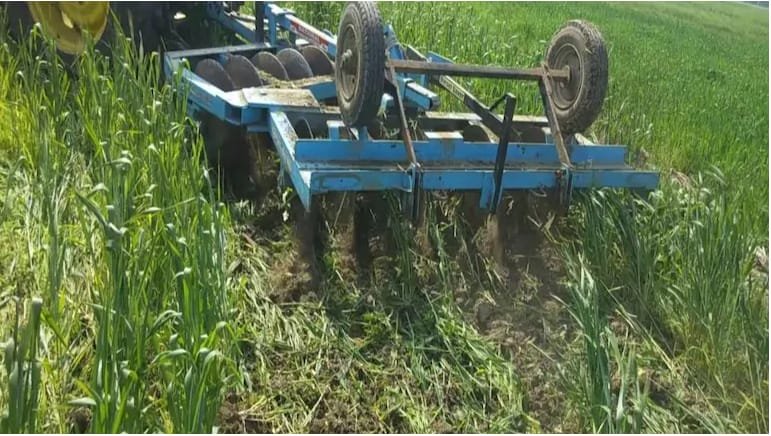Key points:-
- “If required, we will sacrifice one crop,” BKU leader Rakesh Tikait had said
- A small farmer in Rohtak, Mandeep Singh destroyed his crops in protest against the farm laws
- Farmers from Ambala, Sonipat, Panipat districts of Haryana are also destroying their crops
On February 18, Tikait while addressing a Kisan Mahapanchayat in Haryana’s Hisar had threatened to burn crops as a mark of protest if the Union government continued with its decision not to repeal the farm laws.
Taking Bharatiya Kisan Union (BKU) leader Rakesh Tikait’s ‘Fasal Jalao’ threat seriously, nearly a dozen farmers in Haryana and Punjab razed a sizeable part of their standing wheat crop to protest against the new farm laws.
“If required, we will sacrifice one crop. We will have to burn the standing crops. The government should not think that the farmers will return to villages to harvest the crops. The protest and harvesting will go simultaneously,” Rakesh Tikait had said.
Tikait had justified his threat as a mark of protest against the Union government. He had said that perception is being created that the farmers will return to their homes to harvest the wheat crop after two months. “The protests will continue as Punjab and Rajasthan farmers harvest crops at a different period. Those not harvesting will continue to protest,” Tikait had told supporters.
Various farmers in Punjab and Haryana are destroying their standing crops in protest against the three contentious agriculture reform laws. Most of the farmers started raising their crops after Tikait’s controversial statement.
Despite Rakesh Tikait having clarified that there was no need to burn the crops at this moment, farmers at many places have already razed their crops.
Mandeep Singh, who hails from Bhaini Surjan village in Rohtak district, is one such farmer who destroyed his standing wheat crop over an area of three acres. He said he did this to protest against the new farm laws.
Mandeep is a small farmer and owns just one-and-a-half-acre land. He survives by cultivating nearly 25 acres of land which he got on a lease of Rs 30,000 per acre. Mandeep and many other farmers of his village have decided not to sell their crops this season. They will either donate their crops or will keep them for self-consumption.
“I am incurring a loss of over Rs 30,000 per acre. I did this as my protest against the farm laws. We have decided not to sell our crops this year,” said Mandeep.
Balraj Singh of Gadholi, Jind, also razed his standing wheat crop over one acre and donated it to a local cowshed which will be used as fodder. The crop was to be harvested in April.
Balraj first shouted ‘Kisan Ekta Zindabad’ slogan and then drove his tractor over the crop to flatten it. “The government is not repealing the agriculture laws. The farmers are protesting against these laws for the last three months. The farmers work hard to grow food grains, but the government is not listening,” Balraj said.
There are reports from Ambala, Sonipat, and Panipat districts of Haryana and Punjab’s Bathinda confirming that farmers are destroying their crops in protest against the central government.
A 26-year-old Ambala farmer, Gurpreet Singh, also flattened his wheat crop. His family owns seven acres of land in Manikpur on Chandigarh-Hisar highway. He will donate his remaining crop to a gurudwara or among the poor in protest against the laws.
Naresh Jaglan of Panipat’s Israna area is also on a path to destroy his crop. He has already destroyed over four acres of his wheat crop.
Haryana Bharatiya Kisan Unit president Gurnam Singh Chaduni said farmers destroying patches of their crop might have misinterpreted the statement given by Tikait.
“Rakesh Tikait never asked the farmers to destroy their crop. He had just said that they should be ready to sacrifice one crop. I appeal to the farmers not to destroy their crops as we are fighting,” Chaduni said.
Haryana Agriculture Minister JP Dalal has appealed to the farmers not to destroy their crops, saying there are many other ways to protest.

